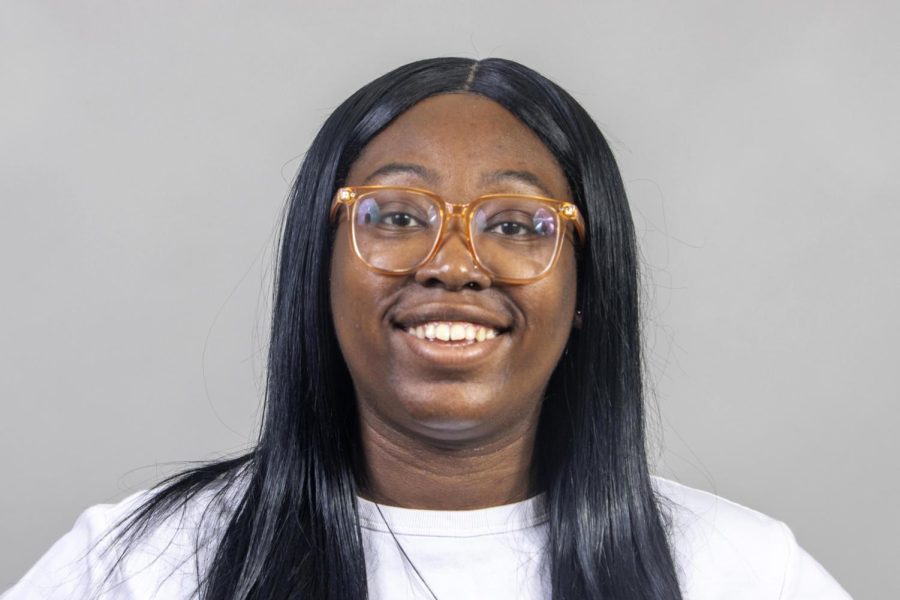COLUMN: What does it mean to be an ally to the Black Community?
Kyla Moton is a junior English major and can be reached at 217-581-2812.
February 12, 2023
When it comes to being an African American, it can be refreshing when you see those who are not Black supporting our causes and who know the issues that go on within the community and help us combat them.
But, sometimes it is hard to tell whose intentions are pure and whose are not. Some white people help the Black community fight for the cause because they truly believe that the treatment of African Americans is unethical.
Other white people help the Black community fight our issues because it makes them look good. It is not right to only help fight a cause because it makes you look good, it is disrespectful to the community and it really just makes you look like a fool.
To me, a true non-Black ally to the Black community looks like a genuine interest in Black issues, such as police brutality and poverty.
I like to say that the white people who have an actual interest in helping the Black community, they would use their privilege to advocate for us when we are not heard.
It can be hard for us as Black people to feel heard and understood. It is part of the reason why Black women are twice as likely to die during childbirth than any other race of women.
The white people who truly care and understand that this is an issue use their voices to advocate for Black voices that are silenced or dismissed.
Speaking up for them and telling the people in your community that they should be hearing us out instead of dismissing our concerns and treating us as if we are liars.
Another thing that I feel white people can do to be good allies to the Black community is to educate yourself on the various issues that the Black community faces that could easily be prevented with the right amount of knowledge.
A perfect example of this that I can recall occurred recently. The English department here at Eastern hosted a lecture and workshop with April Baker-Bell, PhD. to kick off the Black History Month events on campus.
The lecture discussed Black language and the discrimination that African Americans face when it comes to the way in which we speak.
The way we pronounce our words, the way that we greet one another and so much more makes up Black language, but we are criticized for the way that we speak.
In school we were taught that the way we spoke was not “proper English” and to speak in the way that society deemed to be the normal and right way of speaking English. This could be further from the truth, though. Black language is native tongue for us as African Americans.
We were born hearing our parents speak in a certain manner, when we grew up we heard our parents speaking in this same manner so it is just natural for us to adopt this way of speaking, same with any other language or form of English.
The lecture also discussed the appropriation of Black language. As Black people, people openly judge us for the way that we speak, saying that it is not “proper English”.
But, if this were to be the case, why is it that our language and words that we created and made popular get credited to the wrong group of people? Phrases like “period” and “on fleek” are common sayings created and widely used by Black people.
The media likes to dub these terms and sayings as “Gen Z language”. It is a frustrating situation. The terms are becoming popular among communities other than our own, yet we still are not getting credit for making it this way.
Overall, the lecture was great. The one thing about the lecture that took me by surprise that had nothing to do with the lecture itself was the people that attended. Most of those in the lecture were white or students from the English department that I have either had classes with or just knew by association.
I was one of only 4 Black attendees to this event.
It made me glad to know that there were genuine people outside of the Black community wanting to learn more about Black language and asking questions about how they can be better at advocating for Black language to be recognized in professional settings.
This is what it truly meant to be an ally to me. Overall, though, it is not hard to be a genuine ally. If you find it in your heart to do so with only pure intentions in mind, I 100% believe that this is the time to start getting involved.
It is not a hard task, most of the time you don not have to do anything besides be a good person. The choice is all yours.
Kyla Moton is a junior English/creative writing major. She can be reached at klmoton@eiu.edu or 217-581-2812.




































































